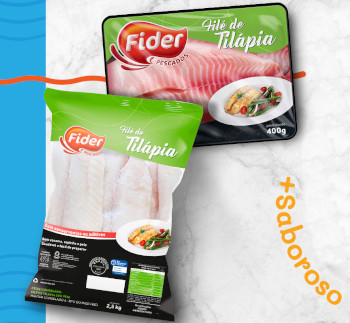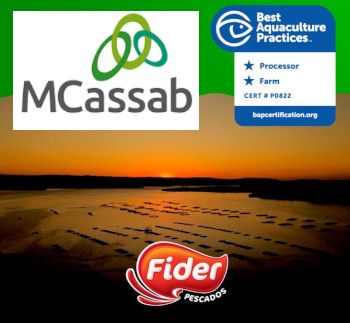|

Image: Fider Pescados / FIS
´The Brazilian market needs to prioritize companies that comply with their environmental obligations´, highlights an expert from Fider Pescados
 BRAZIL
BRAZIL
Thursday, February 22, 2024, 01:00 (GMT + 9)
Company talks about environmental and social responsibility by minimizing health outbreaks and preserving local ecosystems
.jpg) Amid widespread concern about ESG (environmental, social and corporate governance) issues, it is necessary to value corporations that have adopted sustainable processes, especially those that are part of the food sector. “Adjusting procedures requires time and investment, but the return comes from the market searching for companies that have this responsibility. One way to encourage these changes is for the Brazilian market to prioritize companies committed to these measures”, exalts Juliano Kubitza, unit manager of Fider Pescados. Amid widespread concern about ESG (environmental, social and corporate governance) issues, it is necessary to value corporations that have adopted sustainable processes, especially those that are part of the food sector. “Adjusting procedures requires time and investment, but the return comes from the market searching for companies that have this responsibility. One way to encourage these changes is for the Brazilian market to prioritize companies committed to these measures”, exalts Juliano Kubitza, unit manager of Fider Pescados.
Tilapia exports represented 98% of total Brazilian fish farming in 2022, totaling US$ 23.3 million, according to the Fish Farming Yearbook of the Brazilian Fish Farming Association (Peixe BR). The United States is the largest buyer of Brazilian tilapia, but national fish still represents only 3% of North American consumption. “The most agile way to expand the entry of our product into this center is to invest in the adjustments proposed by the main international certifications, such as BAP (Best Aquaculture Practices) and ASC (Aquaculture Stewardship Council), which standardize processes and prove sustainable effectiveness. of all the steps involved, from cultivation to sale”, highlights Kubitza.
 <-- Source: Fider Pescados / FIS <-- Source: Fider Pescados / FIS
BAP certification expands the export potential of Fider Pescados' tilapia products to markets considered more demanding, such as the United States, as it increases brand protection and minimizes risks, ensuring that the food is produced, prepared and handled according to the most recognized standards and ensures that products and the process comply with specific international standards. The program is compatible with the Global Food Safety Initiative (GFSI), the Global Social Compliance Program (GSCP) and the Global Sustainable Seafood Initiative (GSSI).
Farms certified with the ASC seal are recognized not only for their health care, but also for minimizing impacts on the local ecosystem. The implementation of environmental impact assessments is a prominent practice, as is work to protect the receiving watershed. “We have an environmental improvement program that includes monitoring the Jaguara dam at 13 different points. This provides the environmental regulatory body with a broader view of everything that can impact the lake's water quality, in addition to reducing fish escapes, with effective recapture devices”, he adds.
.jpg)
Source: Fider Pescados
“Aquabusiness and sustainability are intrinsically linked. More sustainable production is a fundamental piece that allows rural producers to open the doors to new and more favorable investments”, concludes the manager of Fider Pescados.
Source: Panorama da Aquicultura (Translated from the original in Portuguese)

Related News:

editorial@seafood.media
www.seafood.media
|



